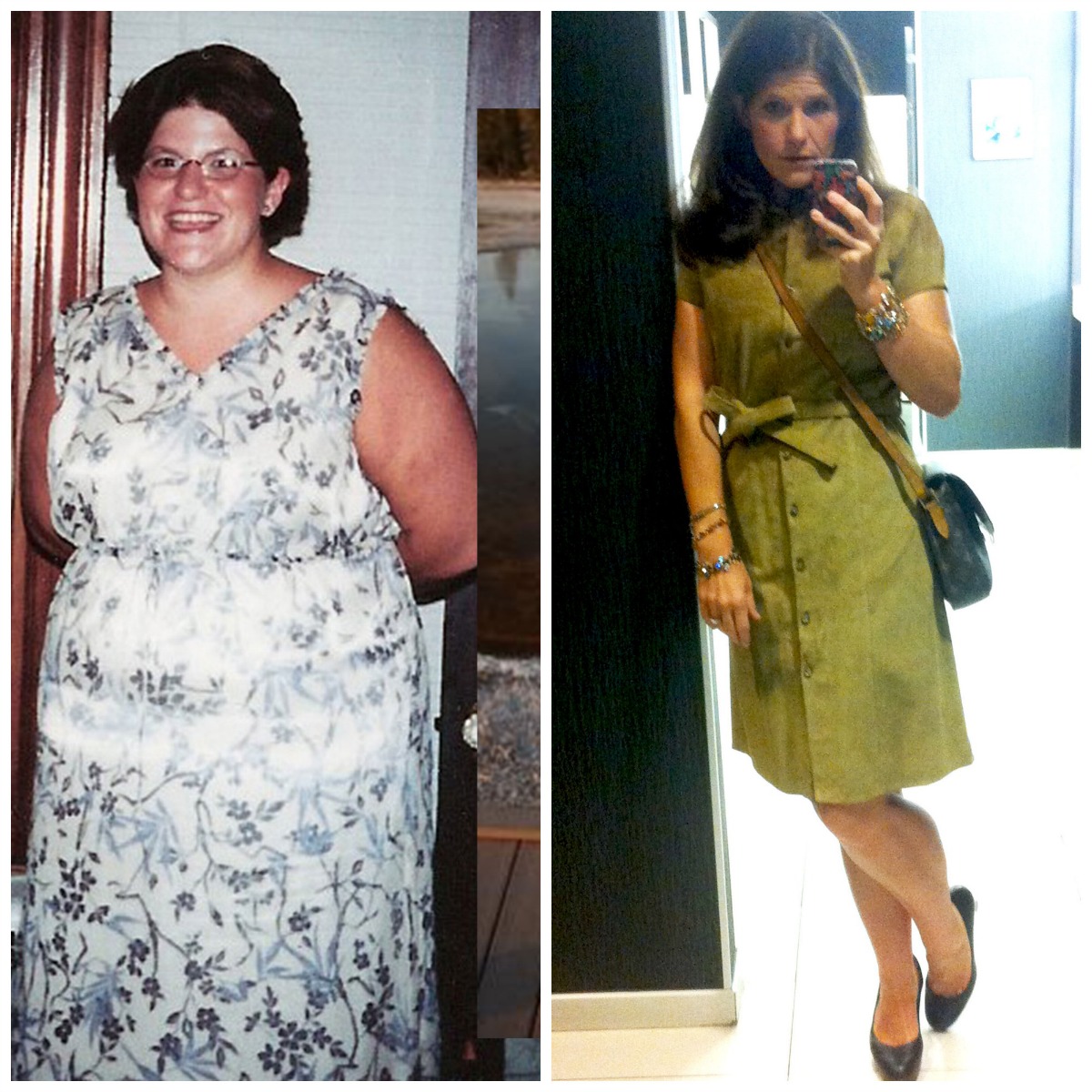Real Weight Loss: Sarah Quina

Sarah Quina Before and After Photo
Through numerous knee surgeries, raising her two-year-old daughter, and studying to be a dietitian, Sarah Quina has been able to maintain her 200-pound weight loss for nearly a decade. What’s her secret? She gave herself enough time. We caught up with the Belmont mom to find out how she lost it, why keeping the weight off can often be harder than losing it, and what she does now to maintain it.
Name: Sarah Quina
Age: 37
Location: Belmont
Weight loss: 190 pounds
How she did it: Quina lost her first 100 pounds in a year and a half, but because she hit a plateau, it took about five years to hit her goal weight. She started by simplifying her diet and walking 4-miles every day. For food, she’d eat a hearty breakfast (a bagel topped with veggies), a salad or a smoothie for lunch, and a Lean Cuisine with frozen veggies for dinner.
When did you first decide you needed to lose weight?
I grew up heavy, so I always knew I needed to lose weight. I was 240-pounds in high school and around 345-pounds in college. My “ah-ha” moment was when I got up one morning and my fingertips were tingling because there was so much fat in my wrist that it was pushing on my nerve.
Why do you think you hit a plateau after your first 100 pounds?
I think when you are losing a lot of weight, sometimes your body just needs to stop and re-adjust. I had also given up losing weight at the time because I was back to the weight I was in high school, and I thought I had reached my set weight.
How did you break out of this plateau?
My diet and exercise was pretty much the same, except I would cook dinner myself. Mostly I ate a lot of salads and lean proteins, and I still eat pretty much the same way now.
How much weight did you lose on a weekly basis?
I would say I lost about 1 1/2 pounds to 3 pounds a week. Some weeks were better than others, but it was pretty consistent.
When did you start noticing a difference?
I started to feel a noticeable difference in the first three months or so because I had already lost almost 50 pounds. The initial weight came off pretty fast because I was quite heavy, but losing weight when I was lighter was more difficult.
When you reached your goal weight how did you change your focus to maintenance rather than loss?
When the scale wasn’t changing, I knew I was paying more attention to life than what I was eating. Instead of my diet being my main focus, I started to trust myself that I had spent enough time working on my relationship with food that I had set myself up for the rest of my life.
You’ve been able to maintain your loss for almost 10 years now, what do you think are the keys for proper maintenance?
I used to think that you could keep weight off without exercise, and until I had my baby I was quite successful at that. I find that when you work out it’s not about the calories that you burn, it’s more about keeping your metabolism going. Yes, walking is good exercise, but it’s not enough. I think it’s most important to do things that build muscle, and it took me a while to realize that. Also, maintenance is about not having that doughnut. Food is so omnipresent in our environment, so you have to get good at ignoring it. Just because it’s there doesn’t mean you have to have it.
Why do you think a lot of people struggle with maintaining the weight after they lose it?
A lot of people get so caught up with those last five to ten pounds that they never learn how to maintain, and that’s how they gain it right back. You can’t be in weight loss mode forever, eventually you have to learn how to live with food.
What sort of exercise do you like to do now?
I lost all my baby weight basically doing bootcamp and group fitness classes. I also worked out with a personal trainer which was extremely useful. Now, I do mostly strength training, and somedays I do cardio.
What has been the hardest part for you?
I think the hardest part is trusting in yourself and giving yourself enough time. Right now I’m studying to be a dietitian, and I’ve really learned that biologically it’s hard to keep off weight, and it takes a significant amount of time to overcome that.


